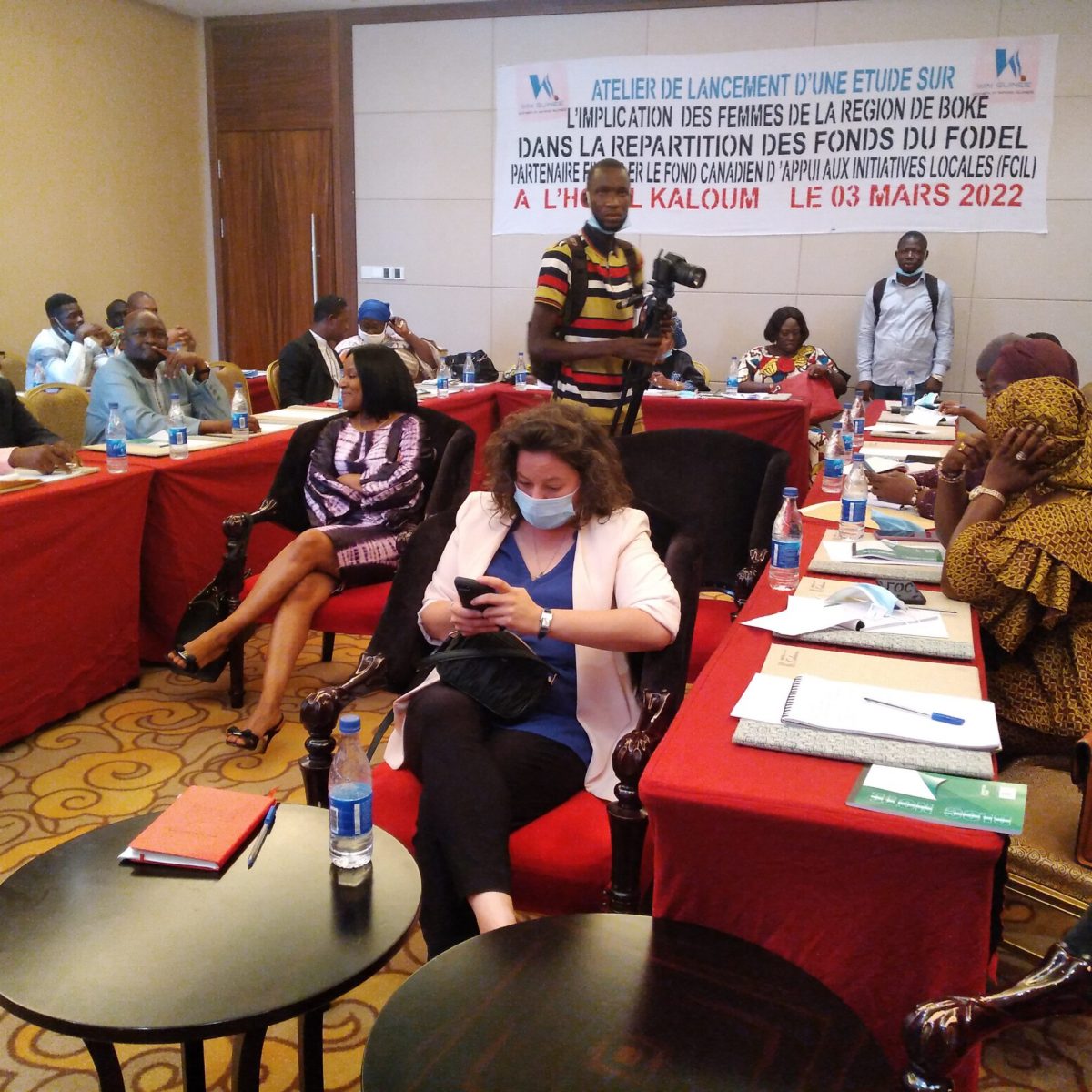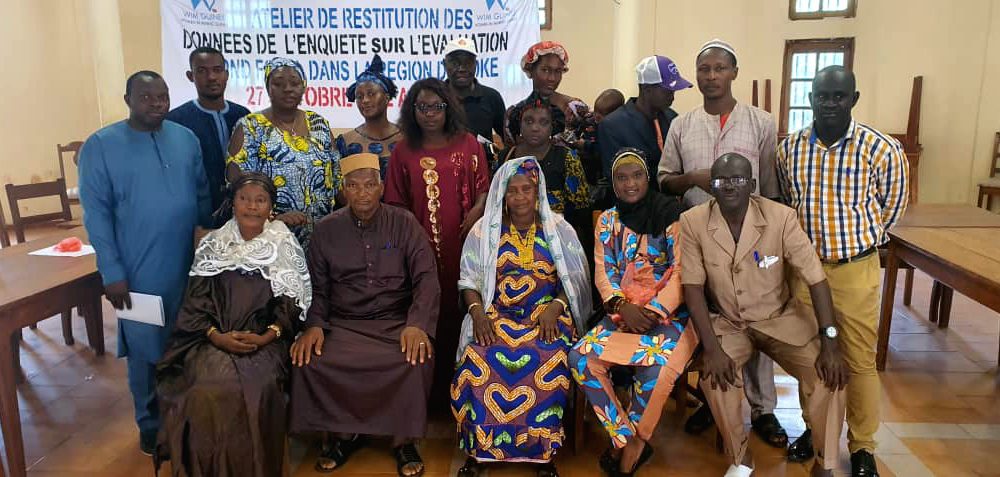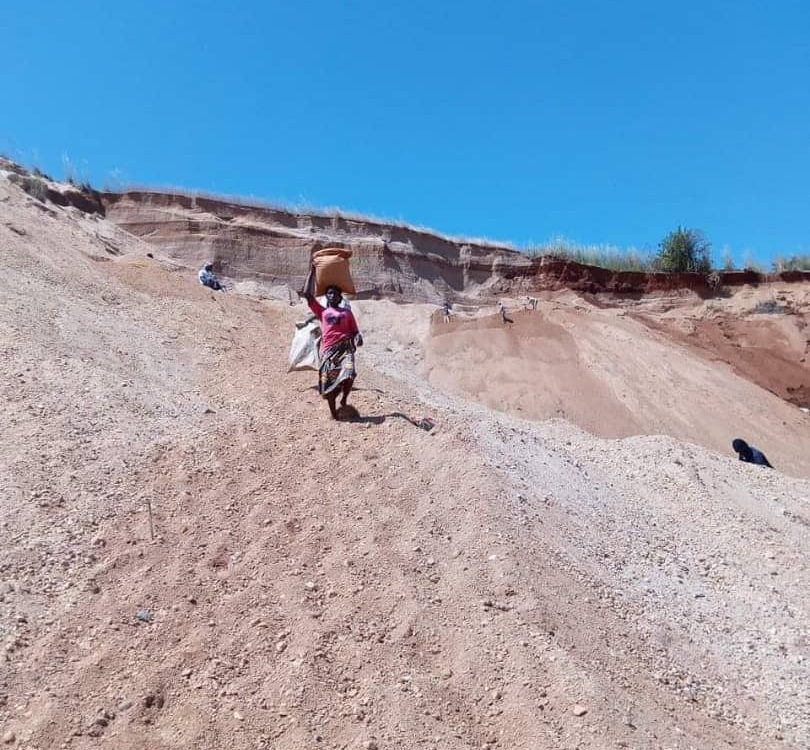
Women in Mining as Actors of Sustainable Development
This quote summarizes the spirit overarching the launch of the Canadian Fund for Local Initiatives (FCIL) funded project and implemented by Women In Mining (WIM) Guinea in partnership with Development Gateway. The project launch was held last week, on March 3rd in Conakry. This WIM Guinea initiative builds on our existing work in the extractives industry in Guinea. With partners, we will assess the involvement of women in disbursement of local economic development (FODEL) funds in the Boke region, and develop a digital tool to visualize the findings.
The Guinea Mining Code, Article 130 states that holders of a mining title have to pay an annual Local Development Contribution (LDC) to the impacted communes from their first commercial production, set to 0.5% of sales for category 1 substances (bauxite and iron) and 1% for other substances. Twenty percent of those funds should be allocated to women and youth. The main objective of the WIM Guinea’s initiative is to assess if women in the Boke region have benefited from FODEL funds and to understand the barriers women face in accessing and using those resources to promote their empowerment and contribute to the development of their communities.
Additionally, the WIM Guinea initiative aims to provide decision makers with the evidence needed to inform policies and strategies that would promote more women’s involvement in FODEL funds, and to inform development partners actions plan on tailored capacity building efforts to further empower women in the mining communities. The launch was opened by WIM Guinea’s President, Ms. Aissata Beavogui; Ministry of Mines General secretary, Mr. Mohamed Lamine Savané; and included the participation of Mrs Gabrielle Bilodeau, Canada’s second Secretary (Political and Public Affairs), the EITI National Secretariat and several civil society organizations currently working on issues of equity in the use of mining revenues in Guinea.
—
Image courtesy of FlammeGuinee.com
Share
Related

Les Fonds FODEL : Un appui aux femmes des es communautés minières avec WIM Guinée
Nous avons organisé un atelier de validation avec notre partenaire de mise en œuvre, Women in Mining (WIM) Guinea dans la région de Boké le 22 octobre 2022 pour confirmer les résultats d'une collecte de données conduite par WIM Guinée dans les sous-préfectures minières de Boké et Boffa. Les données ont révélé des améliorations potentielles des fonds de développement économique local (FODEL) et de leur administration qui, si elles sont mises en œuvre, pourraient permettre davantage aux femmes et aux associations de femmes des communautés minières de capitaliser sur ces fonds et de mieux les utiliser pour soutenir leur développement local.

FODEL Funds: Supporting Women in Mining Communities with WIM Guinea
DG and our implementing partner, Women in Mining (WIM) Guinea, held a validation meeting in the Boké region of Guinea on October 22, 2022 to confirm the findings of a data collection initiative that WIM Guinea conducted in the country’s Boké and Boffa mining subprefectures. The data revealed potential improvements to local economic development funds (FODEL) and their administration that, if implemented, could further enable women and women's associations in mining communities to capitalize on these funds and better use them to support their local development.

Une réflexion sur les données des IE
Au cours des dernières années, DG a intensifié sa recherche dans le domaine des industries extractives (IE) en Afrique de l'Ouest, ce qui a permis de mieux cerner les lacunes en termes de données et d'identifier les opportunités du secteur. Nous avons constaté que les informations disponibles au grand public sont principalement axées sur la transparence des flux financiers et ciblent la scène internationale, mais occultent les facteurs non-financiers et l'impact local réel de l'industrie. Une question reste en suspens : comment promouvoir la divulgation de données susceptibles d'appuyer les communautés impactées par les activités extractives ?